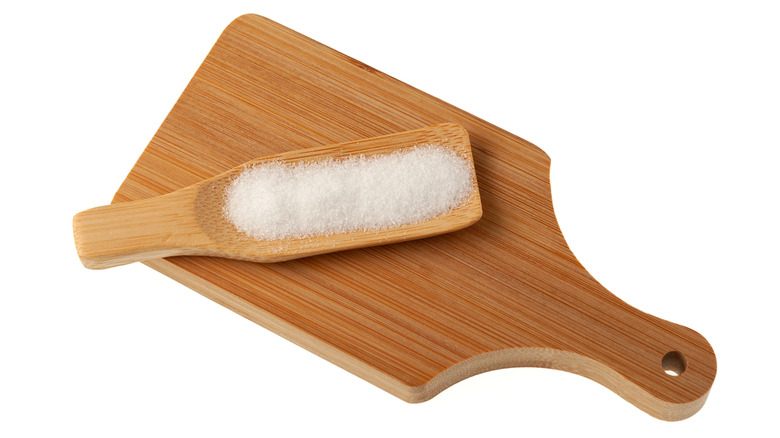The Chemistry Teacher-Approved Trick For Perfectly Melted Cheese Sauce
We may receive a commission on purchases made from links.
Cheese sauce sounds like it should be simple enough to make. You melt down cheese over a pot on the stove, right? In truth, it can be trickier than you'd expect to make sure your cheese melts evenly, and you want to avoid clumpy and oily melted cheese for any dish. To fix that, a handy secret ingredient to use is sodium citrate, a compound often used in processed cheeses to help them melt without losing their creamy textures.
Its name might make it sound more intimidating than it is. Pure sodium citrate is a type of salt which is similar but slightly different than your standard table salt (which is called sodium chloride). Interestingly enough, sodium citrate is also a key ingredient in Alka-Seltzer, which can also help you make a creamy cheese sauce.
With a teaspoon or two of sodium citrate, shredded cheese of your choice, and some milk, it's not especially difficult to make homemade cheese sauce which doesn't have any unpleasant, greasy qualities to it. You just fire up your stove and mix them all together. The end result is extremely similar to Velveeta, a "cheese product" like American cheese known for its creamy, melty qualities which is commonly used in macaroni and cheese. Both Velveeta and American cheese commonly have sodium citrate in them already.
What exactly is sodium citrate?
Sodium citrate is a mixture of sodium and citric acid, and the version you can buy is white and crystallized just like regular salt. If you're not familiar with citric acid, the clue is in the name: It's the acidic compound you can find in citrus fruits such as lemons and limes. While sodium citrate is entirely safe to eat, it can be an irritant if it gets into your eye just like regular salt (or lemon juice, for that matter). Beyond being used to flavor and preserve foods, it's sometimes also prescribed as a medication for lowering the amount of acid in your body. Of course, that's all an aside to the cheese sauce you're trying to make with it.
Sodium citrate does such an effective job at melting cheese into an appetizing consistency because, in layman's terms, it does a good job of making sure the hot, melting cheese doesn't congeal into thick blobs surrounded by runny fluids. In chemistry terms, it acts as an emulsifying agent for the cheese, which means it helps the proteins, fats, and calcium in the cheese blend together without separating. The end result is a creamy cheese sauce which is perfect for pouring over pasta for macaroni and cheese or dipping some tortilla chips into as a snack.

